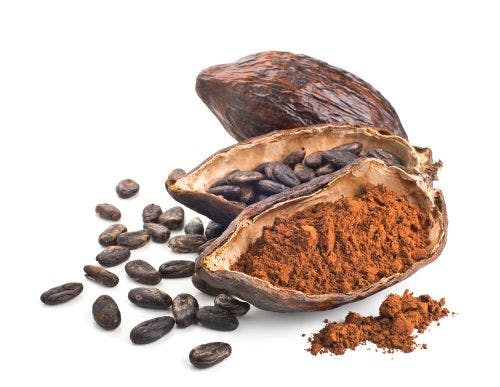Beauty Ingredients: New Research, Both for Topical and Oral Applications
Brands are launching more and more oral and topical natural products in the skin health category thanks to the volume of science available to support their efficacy.
Photo © Shutterstock.com/JPC-PROD

From anti-wrinkle serums to face washes formulated with added benefits, the skincare market has typically been a topical one. But recent findings from Mintel show that skincare’s getting a shake-up from the nutraceutical and natural products industry.
After years of slow growth, the U.S. facial and skincare industry actually saw a decline in sales in 2015-for the first time in five years, says Mintel. Baby Boomers, arguably the target of most antiaging and skincare products, just aren’t buying: Mintel says consumers over age 55 represented the age group that was least likely to report using skincare products, and one-third of them reported not using anything at all.
The good news for nutraceutical and natural topical-product manufacturers and ingredient suppliers is that interest in natural formulations is the one thing Mintel says can rejuvenate this sagging market-and catch the attentions of younger consumers, a much-needed audience. Consumers that the market researcher surveyed agreed that factors like hydration and diet impact skin’s appearance more than the use of skincare products, which suggests a shift towards a holistic outlook. Specifically, Mintel’s Global Beauty and Personal Care Trend Gastronomia revealed that consumers are most likely to be interested in using skincare products with vitamin C (with 85% of consumers saying so) and probiotics (72%).
This shift toward natural ingredients in the topical market is reflected in increased interest in nutraceuticals formulated with an eye to skin health. If you ask Golan Raz, vice president of health and nutrition at Lycored (Orange, NJ), “ingestible skincare” is a category on the rise thanks to consumers’ interest in holistic health overall. “We see more and more consumers who are willing to adopt nutritional changes and nutritional technologies in order to advance the wellness of their skin,” he says. In fact, data from Euromonitor International show that the market size for vitamins and dietary supplements with beauty positioning grew from $76.8 million in 2015 to $83.9 million in 2016.
Indeed, consumers are starting to view the supplement aisle as important as the beauty aisle when it comes to skincare. “The skin health category should more appropriately be called the skin beauty category,” says Lynda M. Doyle, senior vice president of global marketing at OmniActive Health Technologies (Morristown, NJ), “because consumers are increasingly looking for products to address multiple concerns-wrinkles, hyperpigmentation, dull skin, and uneven skin tone.”
According to Sebastien Merchet, nutrition business development manager, North America, at Seppic (Fairfield, NJ), the fact is that brands are launching more and more oral and topical natural products in the skin health category thanks to the volume of science available to support their efficacy.
Topical Strides
New research on naturally derived topical ingredients is advancing both preventative and antiaging efforts.
EVNol is a full spectrum tocotrienol/tocopherol complex from ExcelVite Inc. (Edison, NJ). Extracted from virgin red palm oil, it boasts proven benefits for hair growth and improved skin characteristics when taken orally as a supplement. The newest research, though, supports previous findings that the ingredient also holds promise in topical applications.
A recent study1 showed that a facial gel mask infused with EVNol not only hydrated the skin but also enabled transdermal delivery of tocotrienol. Twenty human volunteers were treated with the mask for 30 minutes, with skin hydration levels measured at various intervals up to 180 minutes. What researchers found was that even at the 180-minute mark, the mask was able to yield significant hydration results by maintaining about 50% of the skin’s moisture. Participants treated with a placebo, however, showed a significant moisture loss at just 30 minutes of mask removal.
Moisture retention is also front and center at Improve USA (Anaheim, CA) with the launch of a new topical Aloe vera ingredient called Enderma. “The product was clinically tested, and the positive benefits included enhanced skin elasticity, increased moisturization, and significantly reduced wrinkle appearance,” says the company’s president, Peter Hafermann, “all within seven days of use.”
The pilot study, a single-blind bilateral design published internally in September 2016, showed a 31.49% improvement in skin elasticity after seven days of treatment with the ingredient, as well as a 67.13% improvement in skin moisture. Further, wrinkles decreased in appearance, and 100% of the women included said that post-treatment, their skin felt softer and smoother, and that their face was visibly more radiant.
Targeting wrinkles is paramount at Biova LLC (Johnston, IA) with BiovaDerm, a water-soluble egg membrane ingredient and the subject of a recent clinical study2 published in October 2016. “The results were very exciting,” says CEO Pat Schneider. “Sixty-five percent of the women showed a significant reduction in wrinkle depth by up to 60%, after eight weeks of topical use.”
Researchers recruited 20 healthy females between the ages of 45 and 65, with the goal of determining wrinkle-reduction capabilities as well as the mechanisms of action behind the ingredient. Wrinkle depth was tested, as was total antioxidant capacity and collagen production. Indeed, after eight weeks of use, researchers noted not only a significant reduction in wrinkle depth, but also the ingredient’s ability to reduce the formation of reactive oxygen species by inflammatory cells in vitro. Further, the increase in collagen was statistically significant, they reported. The mechanism of this effect, researchers said in their report, may be related to the ingredient’s ability to counteract free radical damage at the cellular level and induce an antioxidant response.
BiovaDerm can be “easily formulated in many delivery systems such as creams, serums, and masks,” says Schneider, but there’s also opportunity to include it in sustained-release technologies that are becoming more popular in topical applications.
Bridging the topical and supplement categories is a unique launch from Blue California (Rancho Santa Margarita, CA) appropriate for both applications, says the company’s executive vice president, Cecilia McCollum. Last summer, Blue California announced commercial production of dihydroquercetin (DHQ), a water-soluble bioflavonoid and a powerful antioxidant, found naturally in fruits and vegetables, with skin-rejuvenating benefits.
According to the company, “Studies have shown that DHQ has the unique ability to not only protect cells, but also to stimulate the production of collagen and elastin in the skin. This property of DHQ means that it can actually lead to renewed elasticity and rejuvenation of the skin.”
DHQ can be used in a variety of applications, from beverages to dietary supplements to cosmetics.
Nutraceuticals
While some supplement ingredients in the skin health market aim to prevent the effects of aging before they take hold, others seek to undo existing damage. Both approaches are at the center of new research, highlighting a range of benefits from natural ingredients.
Lycored’s proprietary tomato extract was put to the test in a study3 published in 2016, which sought to determine the extract’s effects, when consumed orally, against ultraviolet UVA, UVB, and UVA1 radiation at a molecular level. The lycopene-rich tomato nutrient complex was found to completely inhibit UVA1 and UVA/B-induced upregulation of select genetic markers. In addition, lutein was effective if taken in the first period of the study, then followed by tomato extract. Ultimately, researchers concluded that both the tomato extract and lutein can protect against solar radiation–induced health damage. This research is important, says Raz, because “it allows us to better understand how to maximize the effect of carotenoid formulations, so that consumers will benefit from available and effective new nutritional technologies.”
Consumers with existing damage, though, tend to turn to supplements that can undo these effects, from uneven skin tone and hyperpigmentation to wrinkles. That’s why much of the newest clinical research is focused on how to turn back the clock on aging.
SkinAx2, an ingredient derived from French grape and melon extracts from Activ’Inside (Libourne, France), was the subject of a recent study4 taking into account the color, contrast, and imperfections of skin. The study enrolled 35 women between the ages of 40 and 70, and supplemented them with a daily oral dose of 150 mg of the ingredient for eight weeks. At the end of the trial, skin luminosity increased nearly 26%, and imperfections-dark circles, redness, and spots-were significantly reduced. Subjects were also widely satisfied with the product, to the tune of about 82% of participants reporting improvements on their skin. Further, about 65% said they thought they looked better after the course of supplementation.
Ultimately, researchers said the ingredient improved radiance by reducing coloring, increasing luminosity, reducing imperfections, and improving skin firmness on women with dull complexions.
Antiaging is also center stage at OmniActive Health Technologies, where its Lutemax 2020 was the subject of a recent study5. Researchers found that taking just 10 mg of the ingredient orally for 12 weeks improved overall skin tone, skin lightening, and elasticity.
Don’t expect ingredient suppliers to stop rolling out new ingredients anytime soon. Most recently, InnoVactiv (Rimouski, QC, Canada) introduced to the North American market a new line of nutricosmetic ingredients at this year’s Natural Products Expo West trade show. Called Myoceram, the ingredients are based on plant ceramides. The line stems from the work of a Japanese firm, Nippon Flour Mills Co., whose experience in grain milling extended to research on skin-healthy plant-based ceramides, which are typically derived from rice or wheat.
According to Jocelyn Bérubé, executive and scientific director, health and nutrition, InnoVactiv, in a press release, “Skin is our body’s largest organ. Yet, how nutrition affects our skin is a research field that has been overlooked for many years. When taken orally at a convenient low dosage, Myoceram boosts the expression of enzymes responsible for endogenous ceramide production within the skin itself. These new ceramides can then incorporate lamellar bodies between each cell to strengthen the outermost corneous skin layer, just as they would through our normal skin physiology.”
“Although beauty-from-within supplements are a staple in Asia, this market is still set to boom in North America,” the company added.
Sidebar: The Beauty of Epigenetics
If you ask David Herault, head of global research and development for bioactives at BASF Corp. (Florham Park, NJ), the future of this category will revolve around epigenetics. The company’s Dermagenist marjoram (Origanum majorana) leaf extract was the subject of a recent study6, which demonstrated the extract’s ability to rejuvenate cells’ epigenetic pattern and reactive gene expression.
“Our goal is to understand how individual lifestyles influence the conditions and needs of human skin, and to develop ingredients that are capable of reprogramming our skin cells,” he said in a press release. “To achieve this, epigenetics is our strongest ally. It is the key to understanding gene modulation and stimulating the activity of genes that have an influence on the longevity of the skin.”
Also read:
Trending Ingredients for Natural Beauty
Collagen's Best Bet for Reaching New Markets
New BASF Skincare Ingredient Balances Skin Microflora to Correct Skin Dryness
References:
- Cheong MY et al. “Tocotrienol-Based Facial Masks.” Part of Malaysian Palm Oil Board Information Series, no. 558 (June 2014).
- Jensn GS et al. “Reduction of facial wrinkles by hydrolyzed water-soluble egg membrane associated with reduction of free radical stress and support of matrix production by dermal fibroblasts,” Clinical, Cosmetic and Investigational Dermatology, vol. 9. Published online October 14, 2016.
- Grether-Beck S et al. “Molecular evidence that oral supplementation with lycopene or lutein protects human skin against ultraviolet radiation: results from a double-blinded, placebo-controlled, crossover study,” British Journal of Dermatology. Published online September 23, 2016.
- Dumoulin M et al. “Clinical effects of an oral supplement rich in antioxidants on skin radiance in women,” Clinical, Cosmetic and Investigational Dermatology. Published online October 18, 2016.
- Juturu V et al. “Overall skin tone and skin-lightening-improving effects with oral supplementation of lutein and zeaxanthin isomers: a double-blind, placebo-controlled clinical trial,” Clinical, Cosmetic and Investigational Dermatology. Published online October 7, 2016.
- Moulin L et al. “Methylation of LOXL1 promoter by DNMT3A in aged human skin fibroblasts,” Rejuvenation Research. Published online August 11, 2016.























